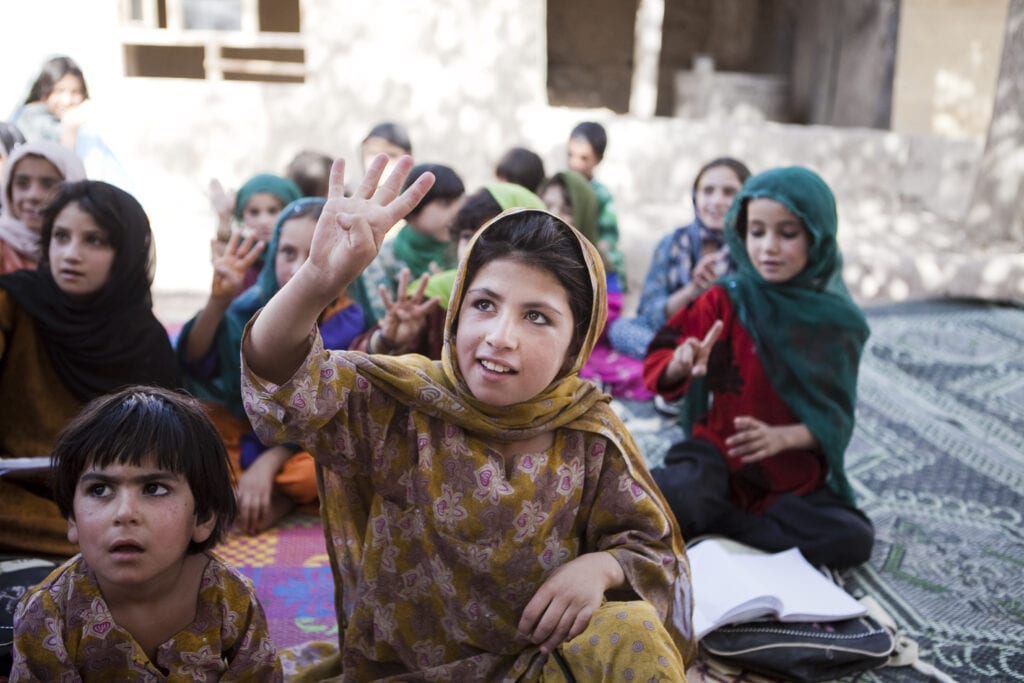Reading ImpactAlpha’s “A sustainable global population in 2100 may depend on girls’ education”, one cannot help but feel the enormity of an impending catastrophe if “faster changes” do not occur in the education landscape. However, such prophetic speeches have dated back as early as the 19th century by philosophers and political economists. Indeed, the Girls Education Alliance Report 2016 highlights the problematic “disconnect between global advocacy conversations… and the efforts of the communities on the ground”.
It begs the question – how do we bridge the gap to propel this centuries-old discussion? Unsurprisingly, this question has no easy answers as it is mired in a system of interlocking and multi-layered problems.
Nevertheless, the call to expand and deepen educational opportunities have nurtured an ecosystem of strategic and collaborative global leaders. Our members have been able to systematically confront these problems, doing their part to make the UN Sustainable Development Goal 4 deadline by 2030.
Here are 3 ways in which 6 of our members have been cornerstones in changing the landscape of girls’ education.
Holistic Education Framework
When providing education for girls, it does not simply involve these young students; as the adage goes, it takes the entire village to raise a child.
To end harmful practices of child marriages, CARE International not only teaches girls to express themselves in public spaces, but has also initiated the Tipping Point project to create safe spaces for “dialogue between adolescents, parents, and other community members”. CARE also partners local governments, and NGOs to devise solutions that address the intricate web of social, cultural and economic causes of child marriages. By actively involving various stakeholders from the familial to national and global levels, these multi-sectoral strategies help to change discriminatory cultural practices that undervalue girls and hinder sustainable global populations.
Similarly, READ Global does not only build libraries or READ Centres for girls and women to increase literacy skills and share their ‘intellectual wealth’, but also organises specialized family planning workshops, and self-help groups to bring girls together to share value-adding skills and knowledge. These programmes spread in concentric circles as families then, communities alter their socio-cultural norms when they witness the benefits of girls’ education.
Collaborative Leadership
As much as efforts need to start from a ‘ground-up’ approach, Teach For All (no link on AVPN Conference website) has also realised the need to address educational equity through leadership development and partnerships. Earlier this year, Teach For All joined the Global Education Skills Forum where CEO and Co-founder Wendy Kopp presented a policy proposal to an international panel. She advocated for education policies to invest in the development of collective leadership—informed by local needs and opportunities, and ideas and innovations from other contexts.
Teach for All has also joined the Public-Private Partnership Alliance that brings together experts from the realms of business, academia, and government. In an on-going series of meetings throughout this year, we can look forward to hearing more about their actionable recommendations.
Similarly, Central Square Foundation (CSF) supports central, state, and local governments by engaging in vision-building, best practices, and serving as an active thought partner on policy-implementation. In a partnership with the Delhi government, CSF improved the quality of vocational courses by strengthening pedagogy, teaching employability skills, conducting teacher training, and streamlining industry exposure. CSF assesses the gaps, and then develops a roadmap for the targeted initiatives before leading the implementation. This partnership has the potential to impact 100,000 students in Delhi.
Innovation as a Key Driver
The call for the most innovative proposals to drive educational initiatives seems to be a notable practice amongst our members.
As MacArthur Foundation’s 5-year initiative on girls’ secondary education grantmaking in India, Nigeria, and Uganda comes to a close this year, it will continue investing through the Partnership to Strengthen Innovation and Practice in Secondary Education (PSIPSE). PSIPSE is a collaboration amongst donors that aims to improve the educational outcomes for marginalized populations in developing countries, particularly in Africa. In particular, PSIPSE’s 2016 Call for Proposals aims to contribute to efforts to reach Sustainable Development Goal 4 on Education.
At The Global Fund for Children, one of the awardees of the 2017 Maya Ajmera Sustainability Awards went to Mariposa DR Foundation that empowers girls living in extreme poverty. The Foundation equips them with knowledge and tools to become leaders in their communities. At the Mariposa Center for Girls, girls engage in a host of activities—tutoring, sports, wellness classes, job skills training, leadership development, art classes, and more—that prepare them to lead healthy and productive lives. With the Maya Ajmera Sustainability Award, Mariposa has resources to train staff, engage in promotion and marketing, and renovate spaces for new income generation projects.
Our members have also been at the receiving end of such competitions when Teach For Uganda was selected as a recipient of the Varkey Foundation Challenge Fund grant of $50,000. The grant supports its early stage education initiatives that aims to place its first cohort of Fellows – an estimated 4500 students – in high-need schools and communities in Uganda in 2018.
To find out more about our members’ initiatives and strategies, don’t miss them at the 2017 AVPN Conference.
Click here for full schedule.


















